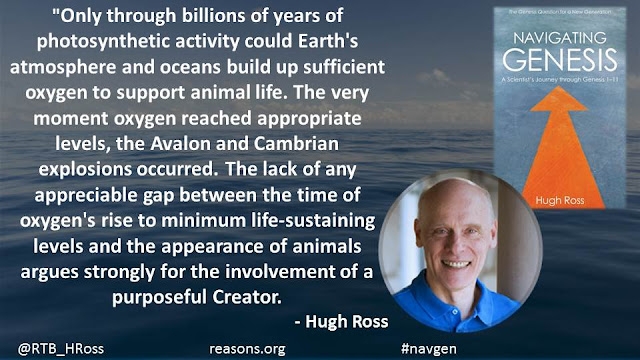The Creator Revealed
In 2018 University of Oklahoma particle physicist
Dr. Michael G. Strauss released his latest book. In this short non-technical volume, he introduces the reader to the astrophysical discoveries that reveal the characteristics of the Creator of the universe, hence the title "
The Creator Revealed." He strongly emphasizes the claim of Romans 1:20 that the Creator's attributes are "clearly seen" in the creation, even by those who wish to deny the Creator's existence. I gave the book a full chapter-by-chapter review available
here, but today I want to highlight fifteen of my favorite quotes from the book.
The Christian and the Life of the Mind
"I think that when we as Christians do not fully investigate the truth of something because we are concerned that it might confront our beliefs, we forget one of the very basic characteristics of the God we serve, namely that he is a God of truth."
"How can we, as Christians, stand firm when our faith is challenged intellectually? We can do this by learning to love the Lord our God with all our minds; by asking tough questions about God and the Bible and finding good, reasonable answers to those questions; by learning how to properly interpret the Bible in its context and according to its culture...and by understanding that all truth discovered by humans will ultimately reveal the creator of all truth."
"I have found that the more one studies nature, the more one can see that it reveals God's personality, to such an extent that many of the writings of even nonreligious scientists clearly declare God's power and majesty."
"When we find truth in nature or we find truth in scripture, we see God's character revealed."
Does The Big Bang Reveal God's Invisible Attributes?
"If the big bang was God's method of creation yet we as Christians deny its veracity, then we are building an unnecessary wall between us and other people who accept the big bang but don't yet know God."
"Most people already have heard of the big bang and agree with scientists that it accurately describes the origin of the universe. What most people don't know is that the big bang also reveals the characteristics of the creator, the God of the Bible."
"The evidence that the big bang was God's method of creation is compelling for many reasons. For instance, it reveals the very nature of God, just as Romans 1:20 says creation should. It doesn't just reveal God's character to those who already believe in him or to those who only look superficially at nature; it reveals the very nature of his character to those who study the universe in depth. It drives people to realize that the creator is a transcendent designer who cares for humanity. It leaves them truly without excuse because they have rejected the creator, not for the record of creation."
"Modern science and the big bang can be tremendous evangelistic tools when we realize that they reveal the character of God."
"When we understand how the big bang reveals the person and character of God, we see him more clearly, and this shows his glory, majesty, and wonder."
Why Do Scientists Accept The Big Bang?
"Based on the evidence from both observations and theoretical calculations, the scientific community eventually, and maybe reluctantly, has accepted the idea that the universe appears to have begun about fourteen billion years ago--because there is no other explanation that fits the evidence."
"The evidence for the beginning of the universe in the big bang has become so powerful and so convincing that scientists have accepted it as true even though the philosophical and theological implications may be repugnant to some."
"There are some Christians who say that most scientists today have misunderstood the facts of nature. They say that the facts clearly point to a universe created just a few thousand years ago. But such a belief is inconsistent with what Romans 1:20 implies. Paul says that the evidence left by the creator should be clearly visible so that all, even the scientists studying the universe, are without excuse if they fail to see it...[T]his is exactly the case with the big bang."
"It doesn't matter when the universe was created, whether it was six thousand years ago or fourteen billion years ago, to the naturalist who doesn't believe in God, both ideas are equally repugnant."
"It should not surprise you that the big bang reveals characteristics of the creator that (1) are clearly evident, (2) are apparent even to those who do not accept any kind of deity, and (3) correspond to attributes ascribed to God in the rest of the Bible. After all, that is exactly what Paul [in Romans 1:20] said the evidence should do."
"An accurate understanding of the big bang and its implications can change lives. Truth has a way of doing that."
Follow Faithful Thinkers On Social Media
The Kindle edition of "The Creator Revealed" is frequently on sale for under $4.00, so check it out here!
For more from Dr. Michael G. Strauss, check out his blog and YouTube Channel!




















